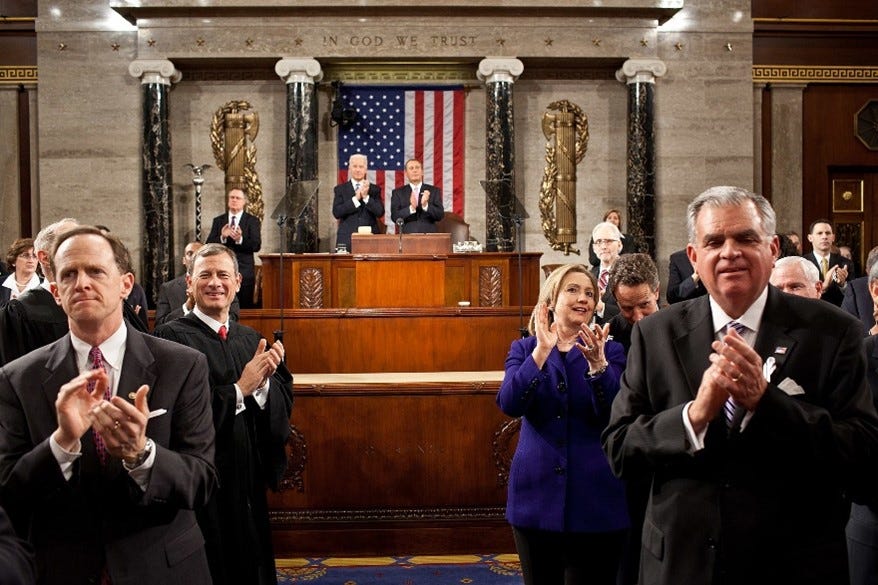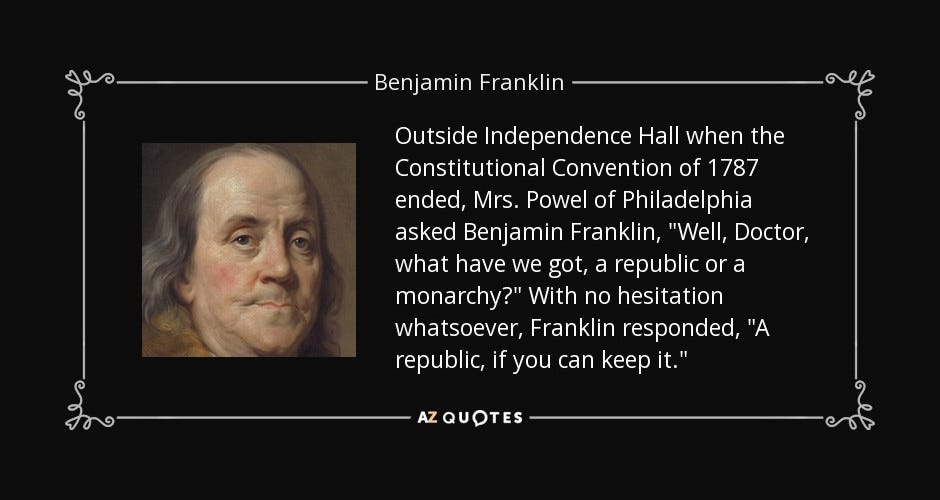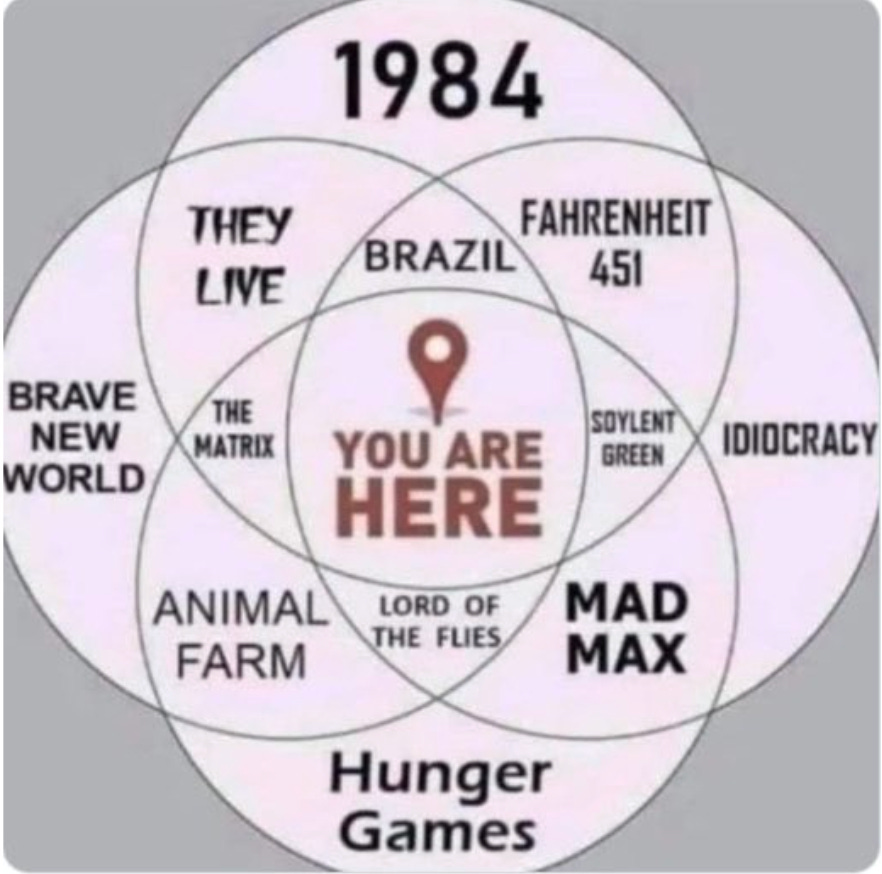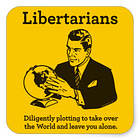This is post seven in the series on political labels
Heavily loaded expressions are flying around in the public conversation about ‘fascism’, racism, ‘xenophobia’ ‘socialism’, ‘communism’, ‘capitalism’ and most importantly: ‘democracy’ with almost as many interpretations as speakers. What makes all of them interesting is the way they are used, the instinctual certainty about their meaning and the assumption that their understanding and interpretation is widely shared. The looser the definition, the greater the scope of its possible use.
Still, one must wonder what is in the head of the person in the picture above. What is her (his? their?) concept of democracy (and the fascism implied on the placard)?
One could wonder what is in the heads of the antifa folks about Putin’s denazification efforts. Do they see him as a comrade? Will they agree on the meaning of fascism?
One should wonder what was in the heads of the 2000 mules exposed in Dinesh di Souza’s documentary of the same title. Were they ‘saving democracy’ with their obviously criminal activities?
As we should also wonder what is in the heads of the many thousands of operatives actively working on stealing the next US presidential election. It requires tens of thousands of operatives to strategically distribute millions of illegal immigrants into swing states and voting districts and to provide them with the documents and mail-in ballots to vote.
What is in the heads of their handlers? Do they see themselves as the defenders of democracy by destroying its most basic principles? Is a democracy that can only be maintained by massive fraud worth preserving? Can it even be called democracy?
Although they would not state it publicly, most democrats seem to think ‘YES’ and prove it with their actions, but the answer is ‘NO’ according to a comment I just received to my previous post. @treece thinks that the US is already fascist state.
She has a point, but is she right?
“I think the predominate problem in America is Fascism. This is evident through the fasces symbolism displayed behind the podium in the United States House of Representatives. The fasces was the origin of the name of the Nationalist Fascist Party of Italy (from which the term fascism is derived).
Is fascism the best way to describe the present state of Western liberal democracies? Isn’t it distinct enough to deserve its own name?
In practice, the words ‘democracy’, ‘capitalism’ and ‘liberalism’ are used to describe “that thing we have” or to mean whatever the speaker chooses it to mean – “neither more nor less”.
They are just vague descriptors of the things that we are for or against.
Do I know the answer? No, but we can start thinking about it. I already wrote several posts about democracy; you can find the links at the end of this post. They are dealing with the conceptual problems with sets of pragmatic questions to show why it cannot work.
To find an answer, to know where we are and why, we have to know what the terms we use mean and how did we get to where we are. Let’s start with the terms:
Democracy is a fundamentally flawed concept. It has more problems than merits.
It is, by design, the tyranny of the majority
It cannot exist without some degree of delegation which makes it inherently corruptible.
It is a blunt instrument destined to surrender its decision-making power to ever growing bureaucracies
Democratic socialism and crony capitalism are oxymorons. Sort of….
They are just lame attempts to explain away the inherent problems of democracy.
‘Democratic socialism’ is socialism, but not the bad kind, you see, as it is redeemed by the goodness of democracy. It is socialism, because that is what “the people” want; shown through their democratically expressed general will.
‘Crony capitalism’ shouldn’t blamed on the flaws of democracy, but on the evils of profit driven exploitative capitalism.Liberalism has a split personality. Well, I should say it is utterly confused. Just do a quick search on the ‘History of liberalism’ to understand what I mean. It is a big subject that would deserve a post on its own. What matters for this conversation is the split that started about a hundred years ago in America which was founded on the ideas of Hobbes and Lock, on the ideas of personal freedom and responsibility, natural rights and equal opportunity.
The political left of the time got tainted with the eugenics of the Fabian socialist and the epistocratic arrogance of the authoritarian progressives like Woodrow Wilson.
They needed a new label, so they hijacked the word ‘liberalism’ to mean various ‘universal’ and ‘human’ rights to other people’s money, managed by a benevolent, redistributive government.
Classical liberalism means individual liberty with personal responsibilities while modern liberalism means economic and social privileges without obligations.
This means the liberal democratic welfare state with various groups competing for a bigger slice of the shared resources and an ever growing bureaucracy controlling it.
It also means, of course, all the libertine stuff of selfish, irresponsible licentiousness and the celebration of hedonism and perversion.
None of it is sustainable. The irreparably corrupt liberal democratic welfare state of the USA with its global hegemonic role is dying in front of our eyes. The rest of the Western world and their global organizations are on the same path.
How we got here
What got us here came about from the interaction of human folly and reality.
our lofty aspirations and petty selfishness
our unconstrained vision and constrained reality
our personal good will and institutional inertia
our principles losing to our arrogance
our virtue replaced by virtue signaling
Politicians sold us on the idea of the free lunch. That con-job was so successful, that in most people’s mind, it is almost unquestionable. The USA was founded on the idea of unalienable rights and natural law. Over a few centuries, this morphed into ‘universal’ and ‘human’ rights that are, invariably, claims on the resources and labour of others.
As I was writing this and putting links to the end of this post, I watched again this short video, linked in one of them. It starts with a question about UNIVERSAL health care, without anybody even batting an eye, let alone questioning the meaning of the concept.
(I made notes to write a post about this)And since we are talking videos, here is another one. Made by the New York Times about the hypocrisy of liberals. Their answer bore an eerie resemblance to the answers communist had to the problems of the system: we are not liberal/communist enough.
The understanding that is missing here is that the cost of free is freedom. Most often, we give up a bit of our autonomy, a degree of power over our own decisions.
The second part of the problem is not understanding that institutions and organizations function like living organisms. From the moment they come into existence, they want to survive, to grow and to multiply. Their interest is NOT necessarily the interest of their creators, quite often, it is against it.
Their feeding ground is society and the economy. Their actual human controllers will be incentivized to serve the interest of the organization, even if it is contrary to the interest of society at large.
To understand this better, you only need to read:
Parkinsons Law: Or The Pursuit Of Progress: Parkinson, Northcote C, the primer on bureaucracy.
The tool that makes this interaction between human folly and institutional interest possible is ideology.
The monstrosity that we are living with today is the result of this interaction.
Where we are
Benjamin Franklin, and most of the founding fathers had a clear dislike for democracy, best expressed by Franklin saying “Democracy is two wolves and a lamb voting on what to have for dinner. Liberty is a well-armed lamb contesting the vote.”
Well, we couldn’t keep it, and even the bones of the lamb are gone, along with the idea that a vote is even necessary. The US is not alone. There is no country left in the Western world with any trace of the spirit that motivated the American revolution.
This is the world we are approaching:
Just about anywhere in the Western world we have
a bankrupt and/or unsustainable welfare system
an unsustainable level of public debt coupled with
an irresponsible monetary policy
unsustainable levels of public spending
a deeply corrupt political system
an ever-increasing tax-burden
an ever-increasing levels AND SCOPE of regulations
an ever-increasing level of censorship and intrusion into the personal lives of private citizens
a dysfunctional and corrupt legal system
…and I could continue, but you should just check out my two posts where I address the problems in more detail: The foundation of theories and A web of interests
What we need to understand is that the we do not have to project Satan into the problems we have.
What we have is NOT nefarious intents, just deeply selfish psycho- and sociopathic ones – and here comes the catch – the kinds that are enabled by our own flaws, weaknesses and misplaced hopes.
Yes, the military-industrial, the big-pharma and health-care, the media-entertainment, the propaganda- censorship, the ideology-education, the political-big-government-regulatory and the whatever-else-you-can-think-of complexes are using, abusing, exploiting and even killing us;
Yes, our personal freedoms are shrinking;
Yes, our influence on supposedly democratic decisions are going down;
Yes, we are surrendering every little bit of our democratic rights to globalized, unelected elites and their organizations;
Yes, the globalists, the post-modernist, the communist and all totalitarians are scumbags, but knowing that is not enough.
We have to stop worshiping false gods (like democracy), we have to stop hoping for yet another free-lunch and start fighting for our independence in our personal lives.
We have to start thinking about the words we use and insists on clarifying them when talking to others.
As I am finishing this post, I still don’t have an answer, I still don’t have a label. The constitutional democracies of old have morphed into a monstrosity that defies definition.
It is a system with incestuous relationships between activists, mega-rich oligarchs and business titans buying media outlets, judges, politicians and riotous street-thugs to advance their own political, ideological and business interests. All of them promoting a globalized concentration of power.
Still, the future is not written, I have some hopes. My next two posts will be about them.
Just stay with me on the journey and share this post if you agree with the points made. If you do not (agree), tell me why!
Further reading (from this substack)
If you have to pick only one from this list, Why Marxism should be the one.
The comments are a continuation of the conversation in the post itself.
Essential reading
The two most important books to read on the subject are:















Many good questions there Zork. Language, and the personal interpretation of words, is “spaghetti -code” like a 20 year old batch COBOL program after thousands of patches that ran on IBM mainframes in the 1980s. I think the greatest casualty of civilized societies since the Internet began is the watered-down meaning of language verbs, nouns, adverbs and adjectives.
I recently read a long essay by Walter Russel Meed entitled "Twilight of the Wonks" which was in my view a bit of a rant about the failing of the expert class that our elites have been turning to for decades. https://www.tabletmag.com/sections/news/articles/twilight-wonks-walter-russell-mead
Zonk, I think you have a much better grasp of the problems than Mr. Meed. Our problem are the experts.